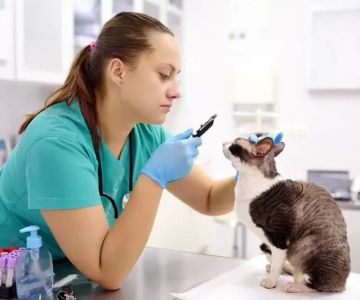- 1. How Much Does a Veterinarian Make an Hour?
- 2. Factors That Affect a Veterinarian’s Salary
- 3. Veterinarian Specializations and Their Pay
- 4. How Location Affects Veterinarian Pay
- 5. How to Increase Your Salary as a Veterinarian
1. How Much Does a Veterinarian Make an Hour?
Veterinarians play a vital role in animal care, and their work is crucial in ensuring the health and well-being of animals. But how much do they make for their time and expertise? On average, veterinarians earn between $30 and $80 per hour, depending on several factors such as location, experience, and specialization. For those starting out in the field, the average hourly wage might be on the lower end of the spectrum, while experienced vets or those working in specialized fields may earn much higher rates. For example, a general practice veterinarian may make around $40 to $50 an hour, while a board-certified specialist can earn upwards of $100 per hour.2. Factors That Affect a Veterinarian’s Salary
Veterinarian salaries can vary widely based on several important factors. Understanding these can help both prospective and current veterinarians navigate their career paths and salary expectations. Experience: Veterinarians with more years in practice tend to earn more due to their increased expertise and efficiency. Education: Additional training or certifications, such as a specialty in surgery or internal medicine, can also boost earnings. Type of Practice: Veterinarians working in private practice typically earn more than those working in public sectors or nonprofit organizations. Demand for Services: Areas with high demand for veterinary services, such as urban centers, may offer higher pay to attract skilled professionals.3. Veterinarian Specializations and Their Pay
Like other professions, veterinarians can choose to specialize in different areas, each with its own salary expectations. Specializations generally offer higher pay due to the advanced skills and knowledge required. Veterinary Surgeons: Specializing in surgery, these veterinarians typically earn the highest hourly rates, ranging from $80 to $150 or more. Veterinary Dermatologists: These specialists, focusing on skin-related issues in animals, can expect to earn between $70 and $130 an hour. Veterinary Cardiologists: Similar to human cardiologists, they can earn $75 to $125 an hour for their specialized expertise in treating heart conditions in animals. As with any career, pursuing a specialization can require a significant investment in education and training, but the payoff in terms of salary can be substantial.4. How Location Affects Veterinarian Pay
Where a veterinarian practices also has a significant impact on their salary. Some regions offer higher pay due to cost-of-living adjustments, demand for services, or availability of specialized roles. Urban Areas: Veterinarians practicing in large cities or metropolitan areas typically earn more due to the higher demand for services and increased cost of living. For example, a veterinarian in New York City may make significantly more per hour than one in a rural town. Rural Areas: While rural veterinarians may earn less, they might benefit from less competition and an easier work-life balance. Regional Differences: Pay varies by state or region, with some areas offering higher salaries to attract talent. For instance, veterinarians in California, Texas, and Florida may earn more than those in other parts of the country due to high demand and higher living costs.5. How to Increase Your Salary as a Veterinarian
There are several strategies veterinarians can pursue to increase their earning potential: Specialization: As mentioned earlier, focusing on a niche area within veterinary care can substantially increase your salary. Networking: Building a strong network of clients and colleagues can lead to new opportunities, higher-paying cases, and a steady stream of business. Starting Your Own Practice: While this requires significant upfront investment, owning a veterinary clinic can lead to higher earnings once it becomes successful. Continuing Education: Attending workshops, pursuing advanced degrees, or obtaining certifications can help you stand out in the field and command higher pay. If you’re a veterinarian looking to maximize your earnings, continuous improvement, networking, and finding your niche can pave the way for a lucrative career.If you're planning to enter the veterinary field, or you are an experienced professional looking for resources and tools to enhance your practice, be sure to check out Rob Travel for the best products, services, and advice to help boost your career and income.










